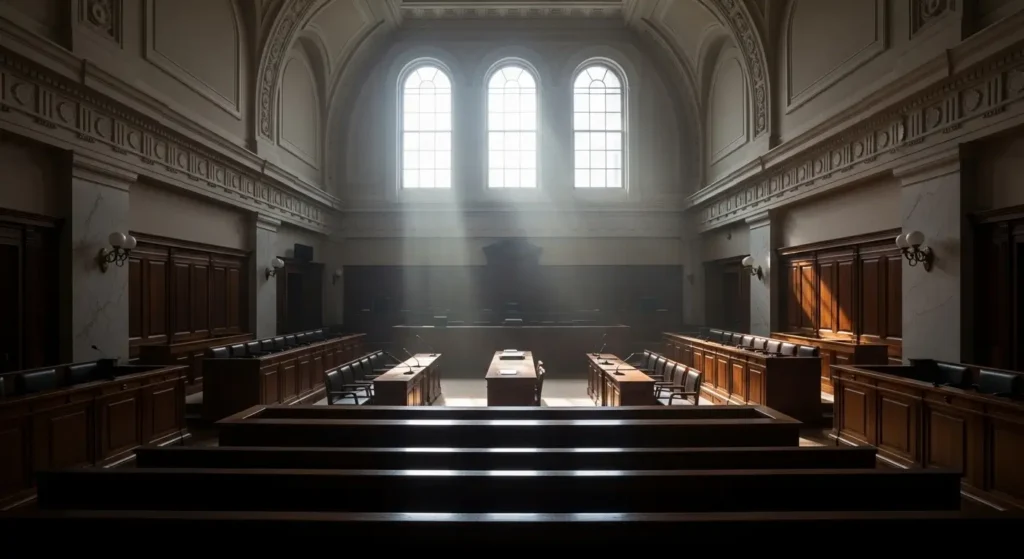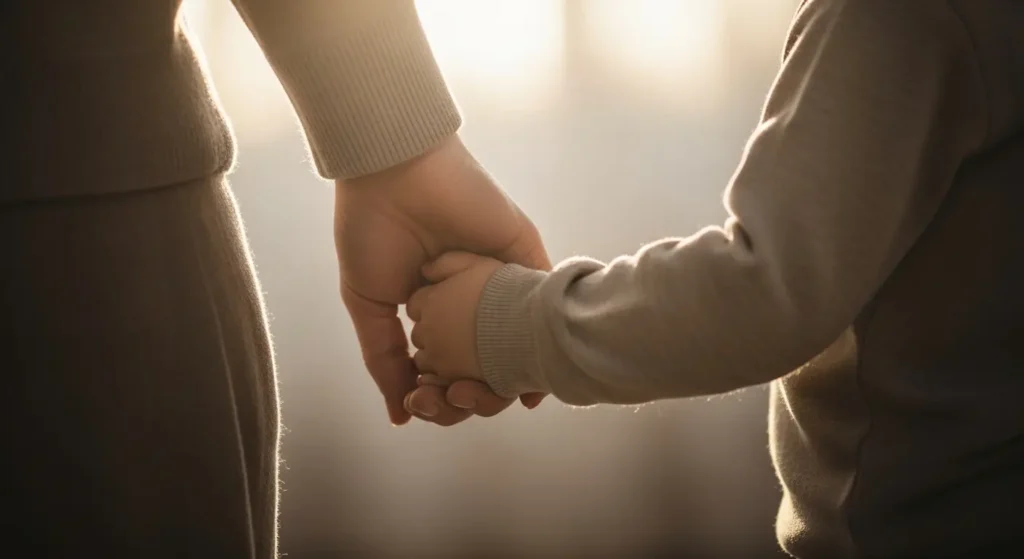Child sexual abuse is a heartbreaking situation that can leave deep emotional scars. Many survivors want justice for what happened to them as children. One way to do this is by filing a civil lawsuit.
A civil lawsuit is different from a criminal case. In a criminal case, the government goes after the person who committed the abuse. In a civil child sexual abuse lawsuit, the survivor (or the survivor’s representative) asks a court for monetary damages or other relief from the abuser or anyone else who might be responsible.
How Do I Start the Civil Lawsuit Process for Child Sexual Abuse?

The civil lawsuit process for child sexual abuse can sound complicated, but it generally follows clear steps:
- Talk to a trusteed lawyer (or several) who handles sexual abuse cases.
- Check the statute of limitations in your area
- Gather your evidence and information about the abuse
- File a formal complaint in court
- Serve the paperwork to the defendant (the abuser or other responsible party)
- Wait for the defendant to respond
- Go through discovery (sharing evidence)
- Attend mediation or settlement talks (if any)
- If no settlement is reached, go to trial
- Get a judgment or settlement
Each sexual abuse lawsuit can look different, but these are the main steps most people follow.
You do not have to face these steps alone. Working with an attorney who understands child sexual abuse lawsuits can make the entire process easier.
Is There a Deadline to File a Lawsuit for Child Sexual Abuse?
Yes, most states have a statute of limitations that sets a time limit. However, child sexual abuse cases have special rules. Many places allow survivors to file a lawsuit years after the abuse happened, especially if they were under a certain age at the time. Sometimes, there is no time limit at all if the child was very young when the abuse occurred.
In some areas, survivors can file up to several years after they realize they were harmed by the abuse. This is because emotional trauma can take time to understand.
Laws vary widely, so it helps to ask a sexual abuse attorney about the statute of limitations in your area. Even if you think too much time has passed, there might be an exception that lets you file.
Who Files the Sexual Abuse Lawsuit if the Survivor Is Still a Minor?

Children cannot file lawsuits on their own in most places. An adult (usually a parent, guardian, or sometimes a “next friend”) steps in to file the lawsuit on the child’s behalf.
In cases where the child’s parent is not available or may be involved in the abuse, a court can appoint a special guardian or representative. The goal is to protect the child’s best interests. This court-appointed helper is sometimes called a guardian ad litem. The guardian ad litem does not replace the child’s lawyer but ensures the legal process does not overlook the child’s welfare.
If you are filing a case on behalf of a minor, it is important to follow all rules about who signs the paperwork and how the child will be represented.
Can I File a Lawsuit if I Am an Adult Now, but the Abuse Happened When I Was a Child?
Yes, you often can. Many survivors do not fully understand the impact of the abuse until they are older. They might have kept it a secret out of shame or fear. By the time they decide to speak out, the abuse might have happened long ago.
Luckily, laws in many areas allow adults to sue for childhood sexual abuse even years later. In some places, there is no time limit at all for survivors who were under a certain age when it happened, or they might have extra time after they turn 18. This is meant to help people who need time to heal before taking legal action. You should check the rules where you live or talk with a sexual abuse attorney who can explain how the time limits work.
What If the Abuse Happened at a School or Another Organization?
It is not always just the abuser who is at fault. Sometimes, a school, church, camp, or sports league knew something was wrong but did not act. Maybe they ignored warnings or covered up other abuse cases. Maybe they hired someone with a known criminal past or did not properly train their staff.
In such cases, the organization might also be sued for negligence or failing to protect. Suing an organization can help bring about changes that keep children safe in the future. It can also provide a source of money to pay for therapy and other needs if the individual abuser does not have enough funds to cover a large judgment.
Will I Have to Face My Abuser in Court?
Sometimes, these lawsuits settle out of court, meaning you would not have to see the abuser in a courtroom. Instead, the abuser or their insurance company might agree to pay a sum of money to end the lawsuit. If there is a trial, you might have to testify. That can be stressful, but your sex abuse attorney will help you prepare. Courts also try to make the process as safe as possible. For example, they can issue protective orders or limit contact between the survivor and the abuser. If testifying in open court feels overwhelming, talk to your lawyer about possible accommodations. The judge may grant special measures (like closed-circuit TV in certain cases or clearing the courtroom) if the law allows.
What If I’m Suing an Organization?
If you are suing a school, church, or other entity, the rules are similar, but there may be additional requirements. Organizations often have lawyers and insurance companies that respond to lawsuits. They might try to deny responsibility or argue they had no knowledge of the abuse.
You and your attorney will need to show how the organization could have prevented the abuse or should have known it was happening. This can include records of previous complaints, personnel files, or witness statements showing negligence. These types of cases can get complicated, but they can also lead to important changes in how organizations screen employees, monitor activities, or handle reports of misconduct.
What Does “Civil Lawsuit” Mean?
A civil lawsuit happens in the civil court system. It is a legal case between two parties (or more). One party is the person who was hurt. The other party is the person or group that caused or allowed the harm. In child sexual abuse cases, the survivor might sue:
- The individual who committed the abuse.
- An organization (like a school, church, daycare, or sports league) that failed to protect the child.
Unlike a criminal case, which can lead to jail time for the abuser, a civil lawsuit focuses on getting compensation or other remedies for the survivor. It can also help the survivor find closure and a sense of justice. By filing a civil lawsuit, survivors can share what happened to them, possibly protect other children, and hold people accountable for their actions or failures to act.
What Is the Difference Between a Civil Lawsuit and Criminal Charges?
Criminal charges happen when the government (prosecutors) charges an abuser with a crime. If the abuser is found guilty, they might go to prison or be on probation. A civil lawsuit, on the other hand, is started by the survivor or the survivor’s family. The main goal is to get money damages or a court order to help the survivor.
The burden of proof is also different. In a criminal case, the jury must find the abuser guilty “beyond a reasonable doubt.” In a civil case, the person bringing the suit must show the abuser is liable by a “preponderance of the evidence,” which means it is more likely than not that the abuse occurred. Because of this difference, sometimes a survivor may win in a civil lawsuit even if the abuser was never found guilty in a criminal court.
How Long Does a Civil Lawsuit for Sexual Abuse Take?

There is no set timeline. Some cases wrap up in a few months if there is a quick settlement. Others can last for years, especially if the defendant denies everything or if there are complex facts. The time depends on:
- How busy the court system is
- How willing the defendant is to settle
- The number of witnesses and amount of evidence
- Any legal motions or appeals
Discovery (the part of the lawsuit where both sides exchange evidence and take depositions) can take many months. While the legal process can be slow, a thorough case often leads to better results. Patience is key. You will want to stay in touch with your attorney for updates and be prepared for bumps along the way.
How Much Will It Cost to File a Sexual Abuse Lawsuit?
Many sexual abuse attorneys work on what is called a contingency fee basis. That means they only get paid if you win or settle. They take a percentage of what you recover. If you lose, you typically do not owe them legal fees (though you might pay for certain costs like filing fees or expert witnesses). This is helpful for survivors who cannot afford a sex abuse lawyer upfront.
Always talk about fees and costs before hiring an attorney. Ensure you understand how much they will take and whether they pay for investigation costs or expert reports. If you have little or no money, do not give up. Ask if the sex abuse lawyer is willing to take your case on contingency or see if there are programs in your area that help survivors for free or at reduced rates.
What Types of Damages Could I Receive for Sexual Abuse?
If you win your lawsuit or get a settlement, you might receive money for:
- Therapy and counseling expenses
- Medical costs (including future treatment)
- Lost income (if the abuse affected your ability to work)
- Pain and suffering (including emotional distress)
- Punitive damages (in some states, if the abuser’s conduct was especially bad)
- Possibly a minimum statutory amount (in certain states that set a guaranteed minimum for victims)
The total amount varies greatly. A strong case with clear evidence can lead to a higher award. That being said, no amount of money can erase the pain. But it can help survivors afford the support they need and keep them from bearing the cost of someone else’s wrongdoing.
Will a Sexual Abuse Lawsuit Make the Abuser Go to Jail?
A civil case does not send anyone to jail. Jail time only happens in a criminal case. However, filing a civil suit does not prevent you from also reporting the abuse to the police if you want to start or support a criminal investigation. In fact, some survivors handle both a civil lawsuit and a criminal case at the same time. Each path has its own rules, procedures, and goals.
If you have questions about criminal law or want the abuser arrested, you should contact law enforcement. Your civil lawyer might also recommend that you speak to a victims’ advocate.
Can I Settle Out of Court?
Yes. Most civil lawsuits end in a settlement before going to trial. A settlement means you and the defendant agree to a certain amount of money (and sometimes other terms) to resolve the case. Settlements are often faster and less stressful than a trial. They can also be private. However, you should only settle if it feels fair to you. Some defendants might offer a small amount of money to end the case quickly, hoping you will accept because you need closure. Talk with your attorney about whether the offer is good enough or if you should keep fighting.
Reach Out to a Sexual Abuse Attorney Today
If you or someone you love experienced child sexual abuse and you are thinking about filing a civil lawsuit, do not wait to seek help. Reach out to a sexual abuse attorney who knows these cases inside and out. They can explain your options, protect your privacy, and fight for the justice you deserve.
Taking action can be a big step in your healing journey. You do not have to face it alone. Get the legal advice you need today so you can move forward with confidence, dignity, and the support you deserve. Your voice matters, and there is a path to seek justice.